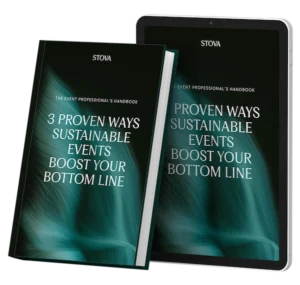5 Simple Tips to Get Faster Responses to Your RFPs
December 23, 2016
The biggest change that has taken place over the last several years is the adoption of eRFPs, the technology that enables planners to send their meeting requests to hotels in just a couple of clicks and magically receive complete proposals in a few hours…or at least that’s how it was intended.
The reality is that the technology that was supposed to save so much time is now the top reason you’re not receiving timely, complete hotel proposals. The problem with eRFP technology is that it’s made it too easy to send requests to way too many hotels. It’s not unusual today to see a single meeting sent to 40, 50 or even 90 hotels at one time; a term to describe this phenomenon is RFP SPAM.
Why is RFP spam bad?
It comes down to two issues: the sales managers’ time and their own confidence that they actually have a shot at booking the meeting. Hotel group sales offices are receiving more meeting leads than ever before. They should be happy about this, right? Wrong. Because they’re actually closing far fewer of those leads than at any time in history. As a result, hotel sales managers must sort through the pile of RFPs and decipher between the ones that appear to be more likely to book and the ones that are just spam.
Here are some tips to build credibility for your RFP. In turn, you should receive and faster, and better responses:
- Keep the total number of competing hotels down to eight or less. This requires some work on your part to ensure that you narrow down the list of the right hotels for your meeting. (A little extra research goes a long way in eliminating hotels that probably wouldn’t work for your meeting anyway.) By reducing the competition for your hotel partner, your RFP Credibility will skyrocket.
- Now tell the hotels who they’re competing against. Take the credibility to a whole new level by providing the names of competing properties. That way they know how many and exactly who they’re competing with. Sales managers fight harder for your business when they know who they’re up against.
- Tell your hotels when the RFP is due back to you. The due date should be no longer than three or four days, even for the largest of meetings. Any longer and you risk losing some of the energy behind the conversation that would be happening about your meeting.
- Be clear on the exact date the decision is going to be made. And do your best to keep it within seven to 10 days of the RFP due date. Why? The shorter the decision window, the harder the hotel will fight for your business. It’s the whole “bird in the hand” thing they’re so close to winning your business that they’ll keep fighting to hold availability open!
- Send updates without being asked. Remind yourself to send quick updates on the decision progress without the salesperson asking. Don’t worry if there’s not much to report. You’ll make a salesperson’s day if you just shoot them an email that reads, “Hey, wanted to let you know that everything is on schedule for the decision in 3 days. Your bid looks great.”
Follow these tips and you’ll be well on your way to receiving the best your hotel partners have to offer. You’ll also be playing a big role in helping to solve the biggest issue facing hotel sales teams today: their own productivity. That will benefit you in more ways than you may imagine.
Whether your event is virtual, hybrid, or in-person, enhance your attendee’s journey with an event ecosystem built for your audience. Ready to walk through Stova's event technology solutions? Schedule some time with us today.

